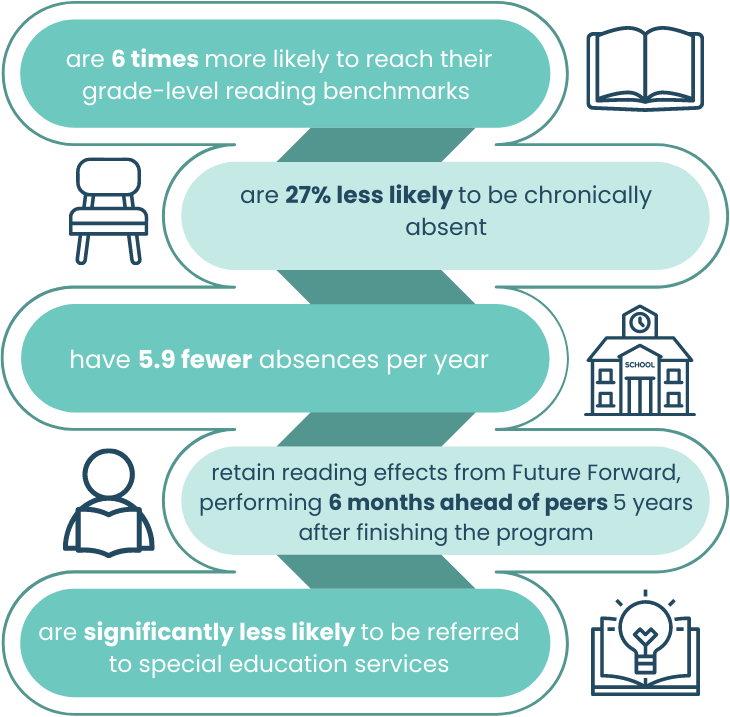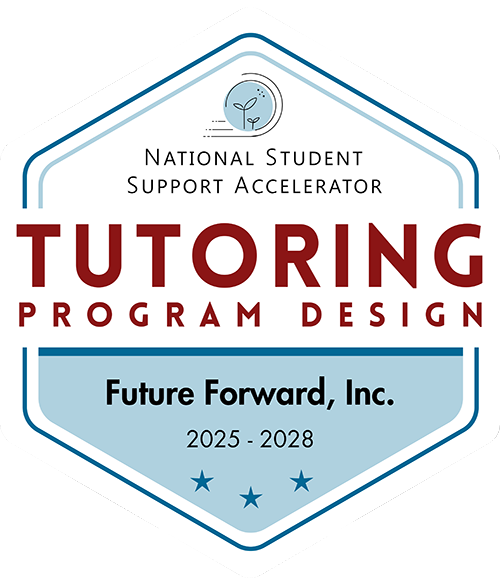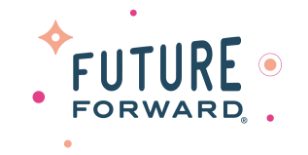IMPACT
The Need
Learning to read is a skill. The ability to access, comprehend, and apply written instructions is essential to functioning effectively in an information-based society.
Third grade is a critical benchmark which initiates a shift from students learning to read to students reading to learn. Students without a basic level of reading competency by third grade are more likely to struggle academically and have social and behavioral issues in subsequent grades. These students are four times as likely to drop out of high school than proficient readers and dropouts are more likely to experience negative outcomes, including lower annual earnings and higher potential for mental and physical health problems.
2020 deeply affected student learning with some of the most vulnerable and underserved students struggling more than ever before. Recent health and social justice crises shed light and attention on the disparate treatment of both students and adults in society. Increased attention on many social disparities has created a national movement to focus on previously underserved students and given schools and communities an opportunity to shift student outcomes and promote long-term success in school and in life.

Early intervention is key: the likelihood of student dropout can be predicted with up to 70% accuracy by third grade, based on reading ability and prior retention. Given the potential negative long-term consequences of low reading proficiency, the fact that only 37% of fourth graders across the country are proficient in reading underscores the magnitude of the problem on a national scale.

Research from the field also shows us that struggling students are disproportionately students of color and lower socioeconomic status. National Assessment of Educational Progress (NAEP) reading test scores reflect persistent achievement gaps between students eligible for the National School Lunch Program (NSLP) and their non-NSLP counterparts.
In addition, these students demonstrated lower proficiency levels in fourth- and eighth-grade reading than their higher-income peers. With poverty rates rising among public school students, there is a clear and urgent need for cost-effective, research-based interventions that promote positive literacy outcomes for all students.
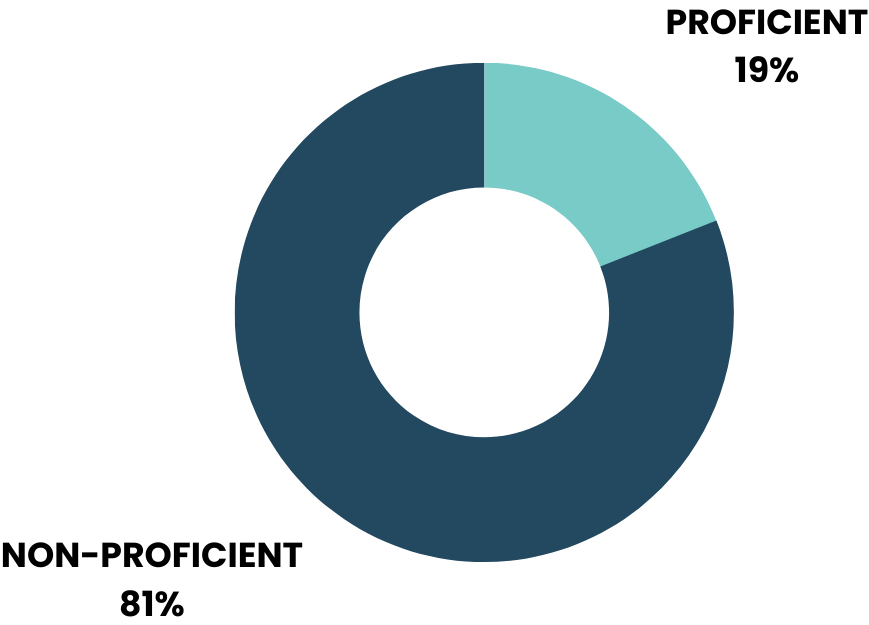

4th Grade Reading Proficiency in Students Non-Eligible for the National School Lunch Program (NSLP)
The Solution
One-on-One Tutoring
Family Engagement
Highly trained Family Engagement Coordinators connect regularly with parents and caregivers with phone calls and text messages, newsletters, home visits, and fun monthly family events – all designed to increase skills in support of students’ reading and overall academic success.

Future Forward’s Implementation & Approach

The program answers this need by improving student reading achievement through research-based literacy programming within their school and in cooperation with their families.
Future Forward’s one-on-one tutoring integrates into a regular school day with intensive, in person tutoring to serve students for 90 minutes per week. Students meet with tutors three times a week for thirty-minute intervals to complete lessons that are tailored specifically to meet each child’s needs. Our tutors are highly trained professionals who build relationships and increase social-emotional resiliency for the students in the program.
There are a minimum of eight students assigned to Future Forward per school at a time. Schools provide a quiet, safe space for program materials and tutoring sessions. Future Forward is not integrated with the rest of classroom instruction, but tutors are allowed to retrieve students and escort them back to the classroom to effectively manage time and ensure safety.
The second integral component of Future Forward is family engagement. This includes regular, consistent outreach, connection, and communication with parents and families. More specifically, families with children in our program will receive monthly conversations, texts, email exchanges, newsletters, and general outreach. We want to keep families informed and build strong, trusting relationships. Finally, Future Forward hosts in-person family events to celebrate their children’s achievements and inform how parents/guardians can best support their child’s reading improvement.
In their external evaluation of the The Program Model, the Socially Responsible Evaluation in Education (SREed) at University of Wisconsin-Milwaukee found that including school-day one-on-one tutoring and intensive family engagements in a literacy model yielded positive and statistically significant impacts on student outcomes. Further, the positive impact of the program was shown to remain stable one year after the end of participation: former participants scored significantly better on the spring STAR Reading assessment compared to control students, and former participants had 2.9 fewer school absences compared to control.
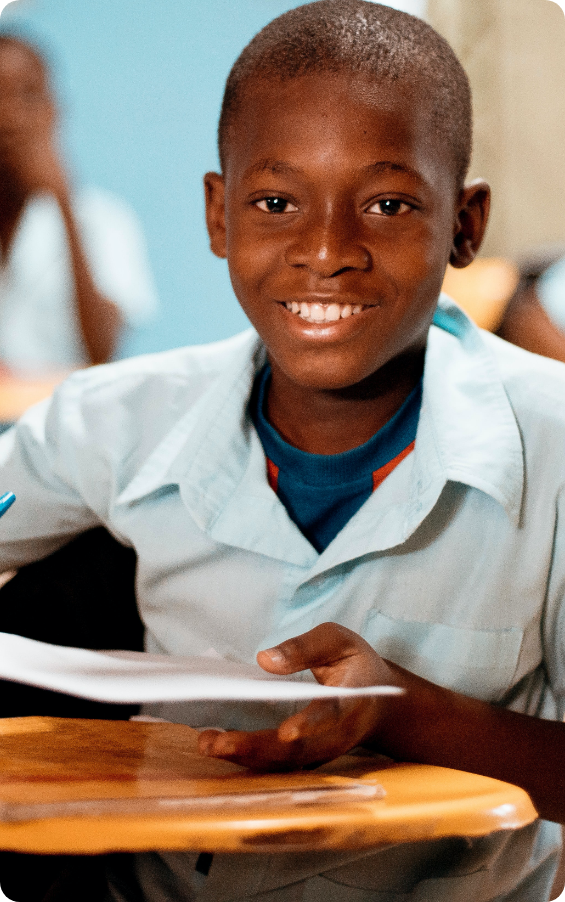
Evidence of Program Success
Future Forward students…
